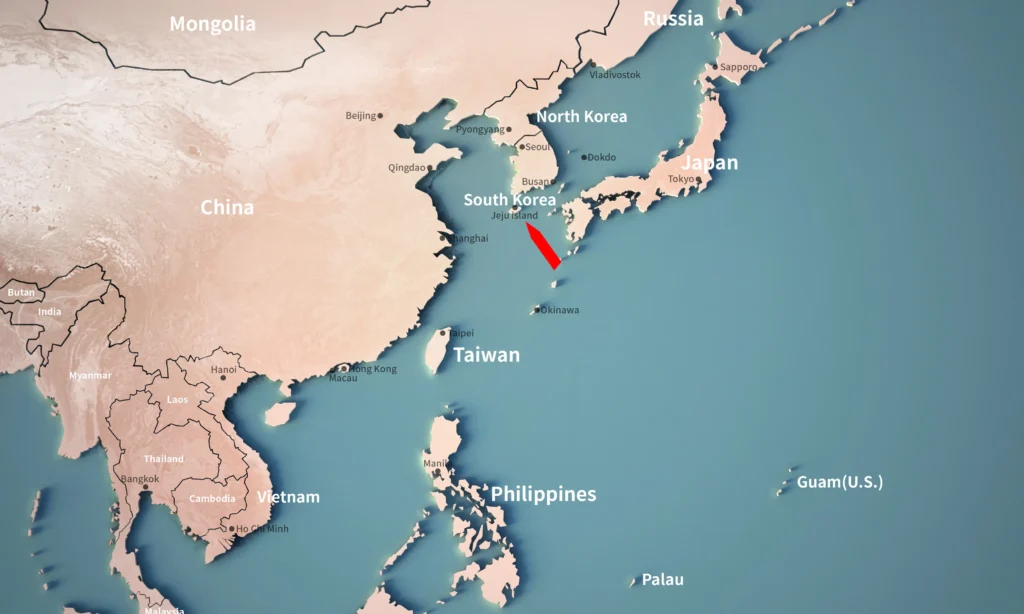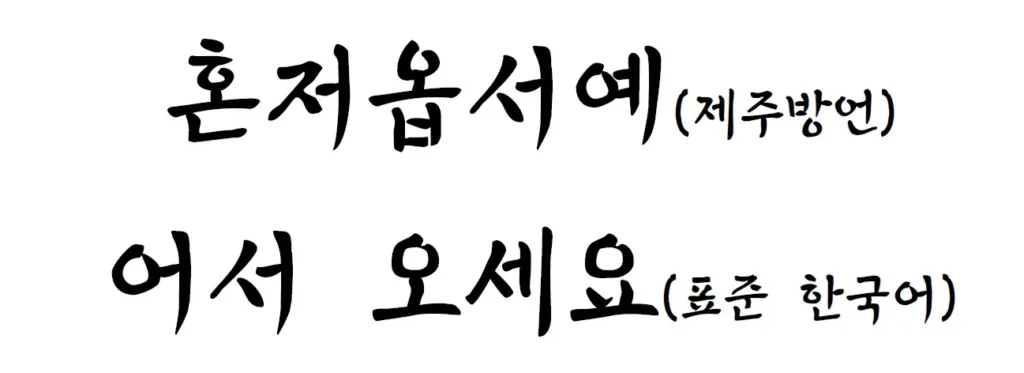1. Introduction
Introduction to the Netflix Drama ‘Poksak Sogasuda’
The recently released Netflix drama ‘Poksak Sogasuda’ is a romantic historical drama set in Jeju Island. It gained significant popularity upon its premiere, sparking interest in both the setting of Jeju Island and its dialect, the Jeju dialect. The actors in the drama are well-known in Korea and are recognized for their acting skills. The phrase “I trust them to deliver” is often used in Korea to express confidence in their performances, which leads viewers to expect that any drama or movie they appear in will be entertaining.
The Jeju dialect used by the protagonists in the drama plays a crucial role beyond mere linguistic elements; it shapes the identity of the work and enriches the story and characters. For instance, when asked about the meaning of the title “Poksak Sogasuda,” most speakers of standard Korean, unfamiliar with the Jeju dialect, would interpret it as “completely deceived.” However, the actual meaning of this dialect phrase is “thank you for your efforts,” which could lead to misunderstandings for those not familiar with it. The English title of the drama, ‘When Life Gives You Tangerines,’ parodies the famous English proverb ‘When life gives you lemons,’ conveying a message to maintain a positive attitude even in difficult situations. Interestingly, tangerines from Jeju are referred to as Mandarins in English, but to avoid confusion with the term for the Chinese language, they were translated as tangerines.
The drama was not filmed on Jeju Island but was shot in Andong (a city in Korea), where a set was constructed to resemble an actual village. The harbor was also a set, and a real boat was brought in for filming. The ocean scenes were created using CGI. Unfortunately, the set was dismantled after filming.
Introduction to Jeju Island and Its Geographical Characteristics
Jeju Island, located at the southern tip of Korea, is a volcanic island renowned for its unique natural landscapes and culture, beloved by travelers worldwide. Situated approximately 90 kilometers from the Korean mainland, it is the largest island in Korea and an autonomous region, home to around 700,000 residents. Jeju Island boasts a variety of natural attractions, including Hallasan Mountain (1,950m), over 360 oreums (small volcanic hills), volcanic caves, waterfalls, and coastal cliffs.
Due to its geographically isolated location, Jeju Island has developed a unique culture and language distinct from the Korean mainland. Over centuries, this island has maintained its own independent development while being influenced by mainland Korea and exchanges with neighboring countries such as China and Japan, shaping its unique cultural identity. This geographical and historical background has significantly contributed to the formation of the distinct Jeju dialect.

Background of the Attention on Jeju Dialect
The Jeju dialect is not just a regional dialect but is recognized by UNESCO as a critically endangered language, with active efforts for preservation and inheritance in recent years. In the past, the use of the dialect was suppressed due to standard language policies, but recently, the value of cultural diversity and regional identity has been reassessed, leading to a significant increase in interest in the Jeju dialect.
In addition to dramas like ‘Poksak Sogasuda,’ there has been a rise in films, documentaries, and variety shows set in Jeju Island, increasing exposure to the Jeju dialect through popular media. Moreover, as the number of tourists increases, so does the demand to understand and experience the local culture more deeply, leading to the Jeju dialect being recognized as an important element of cultural experience beyond just a language. The Jeju dialect possesses particularly unique pronunciation, vocabulary, and grammar compared to other Korean dialects, making it an important subject for linguistic research. In this context, the Jeju dialect has become an interesting topic that showcases the diversity of Korean culture to foreigners.
2. History and Characteristics of the Jeju Dialect
Historical Background and Formation Process of the Jeju Dialect
The history of the Jeju dialect is closely linked to the linguistic history of the Korean peninsula while undergoing an independent development process. Linguists analyze that the Jeju dialect preserves many characteristics of ancient Korean. Due to Jeju’s geographically isolated environment, it was relatively free from the linguistic changes occurring on the mainland, which is why traces of Middle Korean remain prevalent.
Historically, Jeju Island was an independent kingdom known as ‘Tamna,’ later coming under the rule of the Goryeo (918-1392) and Joseon (1392-1910) dynasties. During this process, while Jeju became politically subordinate to the mainland, it maintained considerable cultural autonomy. Additionally, during the Mongol Empire’s rule (13-14th centuries), it was influenced by the Mongolian language, as well as languages from trade with China and Japan.
During the Japanese colonial period (1910-1945), the use of the Japanese language was enforced, and after liberation, the national standard language policy greatly reduced the use of the Jeju dialect. Particularly after the Jeju 4.3 Incident in 1948, many residents of Jeju moved to the mainland or were displaced by outsiders, accelerating linguistic change.
Currently, the Jeju dialect is primarily used by individuals over 60, with younger generations increasingly using a mixed form with standard Korean or seeing a decline in the use of the Jeju dialect itself. Despite these changes, the unique characteristics of the Jeju dialect remain intact, and various efforts for preservation and inheritance are currently underway.
https://www.youtube.com/@whats_mean
3. Cultural Value of the Jeju Dialect
Background of the UNESCO Endangered Language Designation
In 2010, UNESCO designated the Jeju dialect as a ‘severely endangered language.’ This designation reflects serious concerns about the current situation and future prospects of the Jeju dialect. The main reasons for this designation include:
- 1. Rapid Decline in User Numbers: The population using pure forms of the Jeju dialect is primarily limited to the elderly aged 70 and above. The proportion of young people using the Jeju dialect has significantly decreased, with many mixing standard Korean and the Jeju dialect in daily conversations or using only standard Korean.
- 2. Disruption of Language Transmission: In modern society, it is very rare for families to teach the Jeju dialect to their children. School education is also centered around standard Korean, preventing natural language transmission.
- 3. Impact of Standard Language Policies: The strong standard language policies initiated in the 1950s suppressed dialect use and encouraged the use of standard Korean. As a result, many residents of Jeju avoided using the Jeju dialect in formal situations.
- 4. Changes in Demographics: The development of tourism and increased migration have significantly altered the population composition of Jeju Island. Most newcomers use standard Korean, further shrinking the environment for the use of the Jeju dialect.
- 5. Impact of Media and Education: The proliferation of mass media such as television, radio, and the internet, along with a standard language-centered education system, has greatly increased exposure to standard Korean over the Jeju dialect.
UNESCO’s designation signifies that the Jeju dialect is recognized not just as a dialect but as an independent language with unique cultural and linguistic value. It has also led to international recognition of the urgency and importance of preserving the Jeju dialect, influencing the establishment of various policies and programs for its preservation and inheritance.
4. Conclusion
The Jeju dialect is a valuable cultural heritage that encapsulates the history and cultural identity of Jeju Island. The growing interest in the Jeju dialect through popular media like the drama ‘Poksak Sogasuda’ is a welcome development. It is hoped that its unique charm and linguistic value will become known to more people, encouraging visits to Jeju Island, and finally, I greet you with ‘Welcome’ in the Jeju dialect. [hon.jʌ.op.s͈ʌ.je]





